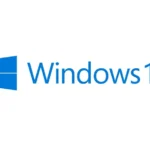In the fast-paced world of technology, mobile networks are evolving at lightning speed. We’ve already seen how 5G has started transforming our lives with faster connections and better reliability. But as we move further into 2024, the possibilities of mobile networking have grown even more exciting. From the continued expansion of 5G to the early glimpses of 6G, mobile networks are at the forefront of a connected future.

In this blog, we’ll explore the latest trends in mobile networks for 2024, what’s coming next with 6G, and how these developments will impact our everyday lives and businesses.
The Growth of 5G Technology
Expanding 5G Coverage Worldwide
5G has been one of the biggest tech buzzwords of the last few years, and in 2024, we’re finally seeing widespread coverage in many regions around the world. Countries are working to expand their 5G infrastructure, bringing faster and more reliable internet to urban centers as well as rural areas. This expansion means that more people can enjoy seamless video streaming, gaming, and communication than ever before.
Impact on Speed and Connectivity
The speed improvements that 5G brings are game-changing. With download speeds up to 100 times faster than 4G, 5G provides near-instantaneous data transfers. This improved connectivity is driving innovation across sectors like healthcare, education, and entertainment. Imagine attending a virtual class with zero lag or doctors performing surgeries remotely with absolute precision – all thanks to 5G.
5G Use Cases in 2024
In 2024, 5G is powering some incredible use cases, such as smart cities and the Internet of Things (IoT). Smart cities leverage 5G for real-time monitoring of traffic, energy management, and public safety. IoT devices, from smart home appliances to connected vehicles, rely on 5G to communicate efficiently, making our lives more convenient and interconnected.
6G: The Next Frontier
What is 6G, and How Does It Differ from 5G?
While 5G is still rolling out, the industry is already looking ahead to the next big thing: 6G. Expected to be much faster than 5G, 6G aims to provide speeds up to 100 times greater, with almost no latency. This could enable technologies that seem like science fiction today, such as holographic communication and fully immersive augmented reality.
Expected Timelines and Developments in 2024
Although 6G is still in its early research phase, 2024 marks a significant year for progress. Companies and governments are investing heavily in 6G research, with the goal of rolling out initial trials by 2030. In 2024, we’re seeing the development of standards and concepts that will shape 6G technology in the coming years.
Potential Use Cases of 6G
With the ultra-fast speeds and low latency of 6G, we could see applications like holographic communication, where people can project 3D images of themselves anywhere in the world. Additionally, the integration of AI into network infrastructure will enable smart, adaptive networks that can manage themselves without human intervention.
Key Mobile Network Trends in 2024
Edge Computing and Network Slicing
One of the biggest trends in 2024 is the growth of edge computing, which brings data processing closer to the source of data. This reduces latency and improves the performance of applications like autonomous vehicles and augmented reality. Network slicing, another key trend, allows operators to create multiple virtual networks on a single physical infrastructure, each optimized for specific needs, such as gaming or critical communication.
Private 5G Networks for Businesses
Many businesses are now deploying private 5G networks to gain greater control over their connectivity. These private networks offer enhanced security, reliability, and customization, making them ideal for industries like manufacturing, healthcare, and logistics. In 2024, we’re seeing more companies adopt private 5G to enhance efficiency and enable new capabilities, like automated warehouses.
Enhanced Mobile Broadband (eMBB)
Enhanced Mobile Broadband (eMBB) is one of the core features of 5G, and it’s getting better in 2024. With eMBB, users can enjoy high-definition video streaming, virtual reality experiences, and faster downloads, all on their mobile devices. This improved user experience is driving demand for mobile data and creating new opportunities for content creators and app developers.
Challenges in the Mobile Network Space
Infrastructure Requirements for 5G and 6G
Building the infrastructure needed for 5G and future 6G networks is a massive undertaking. It requires significant investment in new cell towers, fiber-optic cables, and other hardware. In 2024, many regions are still facing challenges in upgrading their infrastructure, especially in rural or underserved areas, which limits the full potential of these technologies.
Regulatory and Privacy Concerns
As networks become more advanced, regulatory and privacy concerns are growing. Governments need to ensure that data is protected and that new technologies do not infringe on users’ privacy. In 2024, balancing innovation with regulation is a key challenge that the mobile network industry must navigate.
Addressing the Digital Divide
The digital divide – the gap between those who have access to modern technology and those who do not – is still a significant issue. In 2024, efforts are being made to bring 5G to rural and underserved areas, but progress is slow. Bridging this divide is crucial for ensuring that everyone can benefit from the advancements in mobile technology.
Impacts on Daily Life and Businesses
How Improved Mobile Networks are Transforming Industries
The advancements in mobile networks are having a profound impact on industries across the board. In healthcare, 5G is enabling telemedicine and remote surgeries, providing better access to healthcare for people in remote areas. In education, virtual classrooms and remote learning are becoming more immersive and interactive thanks to improved connectivity.
Enhancing Entertainment, Health, and Education
With 5G and the upcoming 6G, entertainment experiences are evolving. From streaming high-definition movies without buffering to experiencing concerts in virtual reality, mobile networks are transforming how we consume content. In health and education, improved connectivity means more opportunities for remote diagnostics, online learning, and access to information.
Opportunities for Small Businesses and Startups
For small businesses and startups, mobile networks offer new opportunities to innovate and reach customers. With the rise of private 5G networks, small businesses can create customized solutions that improve efficiency and reduce costs. In 2024, we’re seeing startups develop new apps and services that leverage the power of 5G, from augmented reality shopping experiences to IoT solutions for smart homes.

Future Prospects and Opportunities
What to Expect Beyond 2024
As we look beyond 2024, the future of mobile networks looks incredibly bright. The continued rollout of 5G, combined with the development of 6G, will bring even more possibilities. We can expect further integration of AI and automation, making networks smarter and more efficient. The concept of “ubiquitous connectivity” – where everything is connected seamlessly – is becoming a reality.
The Role of AI and Automation in Future Networks
AI and automation are playing a crucial role in the evolution of mobile networks. In the future, AI-driven networks will be able to manage themselves, optimizing performance, predicting issues, and even repairing themselves. This level of automation will reduce costs for operators and improve the reliability of mobile services for users.
Conclusion
Mobile networks are evolving rapidly, and 2024 is a pivotal year in this journey. With the continued expansion of 5G, the early developments of 6G, and trends like edge computing and network slicing, the future is full of opportunities. These advancements will transform our daily lives, improve industries, and create new possibilities for businesses of all sizes.
As we move towards a more connected world, staying informed about these trends will help us better understand and harness the power of mobile technology for a brighter, more connected future.

Lila is a seasoned writer at waytoactivate.com, where she crafts comprehensive guides on digital activation and technology. With a background in Information Technology and over 6 years of writing experience, Lila excels in translating complex tech concepts into clear, accessible content. Her expertise ensures that readers receive practical, reliable information to enhance their digital experiences. Follow Lila for the latest updates and tips on activating your favorite services at Instagram.







